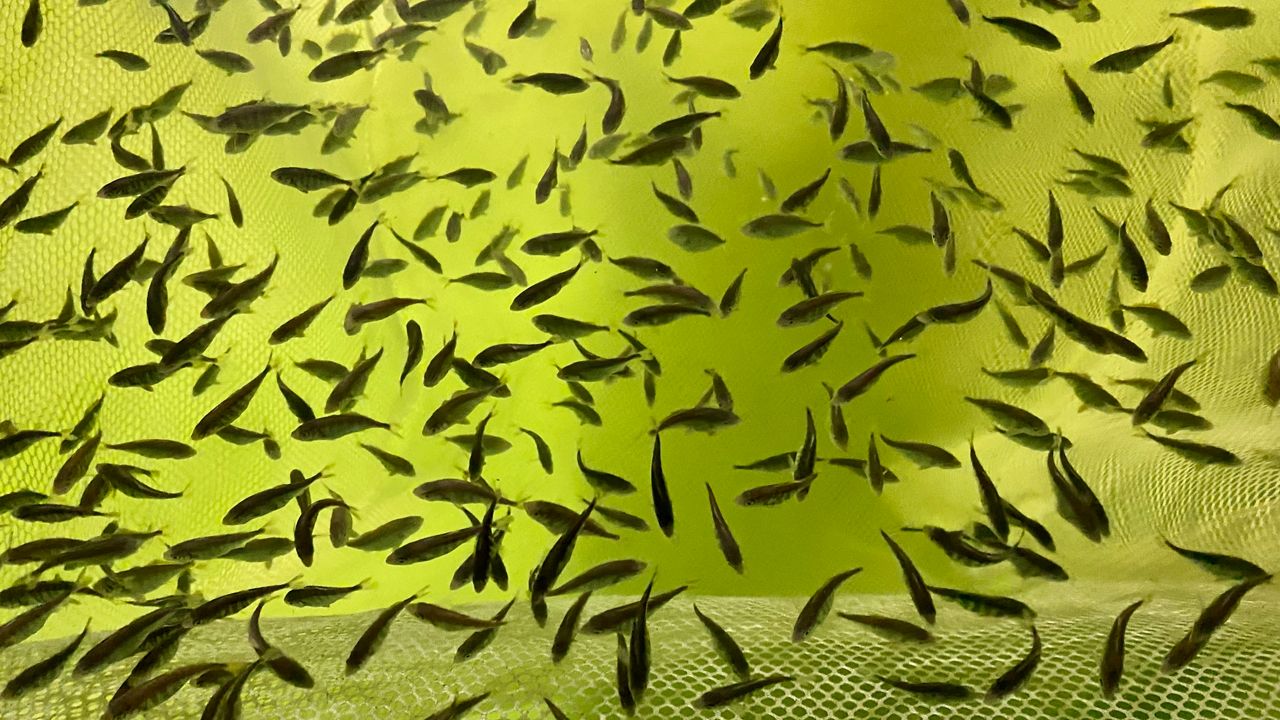A land-based fish farm proposed for Jonesport, one of four potential large-scale fish growing operations in Maine, cleared a local permitting hurdle Tuesday, but opponents say they plan to appeal the decision.
Kingfish Maine, a subsidiary of The Kingfish Co. in The Netherlands, plans to grow up to 17 million pounds of yellowtail each year, which would make it the largest producer of yellowtail in the U.S, according to Intrafish, which covers the global seafood industry.
The plans call for a facility to hatch, grow and process fish on 93-acres along the shore of Chandler Bay.
The Jonesport Planning Board on Tuesday gave final approval to the project after several meetings.
“We are very excited about our ongoing collaboration with the town,” Megan Sorby, Kingfish operations manager, said.
Sorby said the project, which is projected to employ between 70-100 workers, will help spur redevelopment in the Washington County town.
The company agreed to two conditions during the town approval process, including adding two water sampling points in addition to those required by the state and paying for a consultant to give quarterly reports to the town.
Those efforts aren’t nearly enough for Protect Downeast, a group of opponents that includes fishermen and local teachers, which said it will appeal the decision to the town’s board of appeals.
The group says it asked the company to put in enhanced environmental protections, such as funding to monitor, model, test and assess environmental impacts.
“At the end of the day, this massive industrial aquaculture project could have moved forward with all parties in agreement,” Crystal Canney, Protect Downeast’s spokeswoman, said in a statement. “Jonesport and Maine will see more industrial-scale aquaculture projects with environmental consequences to Maine’s fragile coastal waters because the rules and regulations are so weak, foreign companies are flocking here.”
Sorby said the project is subject to ongoing, stringent monitoring.
“What the opponents fail to accept is the fact that the Department of Environmental Protection, Kingfish and the Downeast Institute are all out there looking for data and collecting as much data as possible,” she said.
Town approval followed by citizen pushback is similar to what happened in Belfast, where city officials embraced Nordic Aquafarms’ proposal for a land-based salmon farm while residents continue to fight the project.
Nordic has received permits for its facility, but a legal challenge has tied up the project in court.
Up the Penobscot River in Bucksport, Whole Oceans began site work in June on an old paper mill lot where they plan to build a land-based fish farm. The company will complete a few more tasks this fall, but will pause for the winter, according to Mike Thompson, senior project manager.
And in Bar Harbor and Gouldsboro, American Aquafarms has said it intends to resubmit an application for a closed net-pen salmon system in Frenchman Bay. State officials rejected the first proposal because of concerns about where the company planned to acquire its salmon eggs.
Unlike the land-based farms, American Aquafarms proposed to grow fish in pens in the water and then load them on ships for transport to a Gouldsboro factory for processing.
In Jonesport, the Kingfish Co. announced in May 2019 that it had considered 22 sites along the East Coast for its American yellowtail facility and had narrowed the list to two locations in Maine, according to seafoodsource.com.
Sorby said the company has spent time getting to know the town and plans to keep officials updated on the project.
“It’s clear the priority is monitoring and protecting water quality,” she said.



